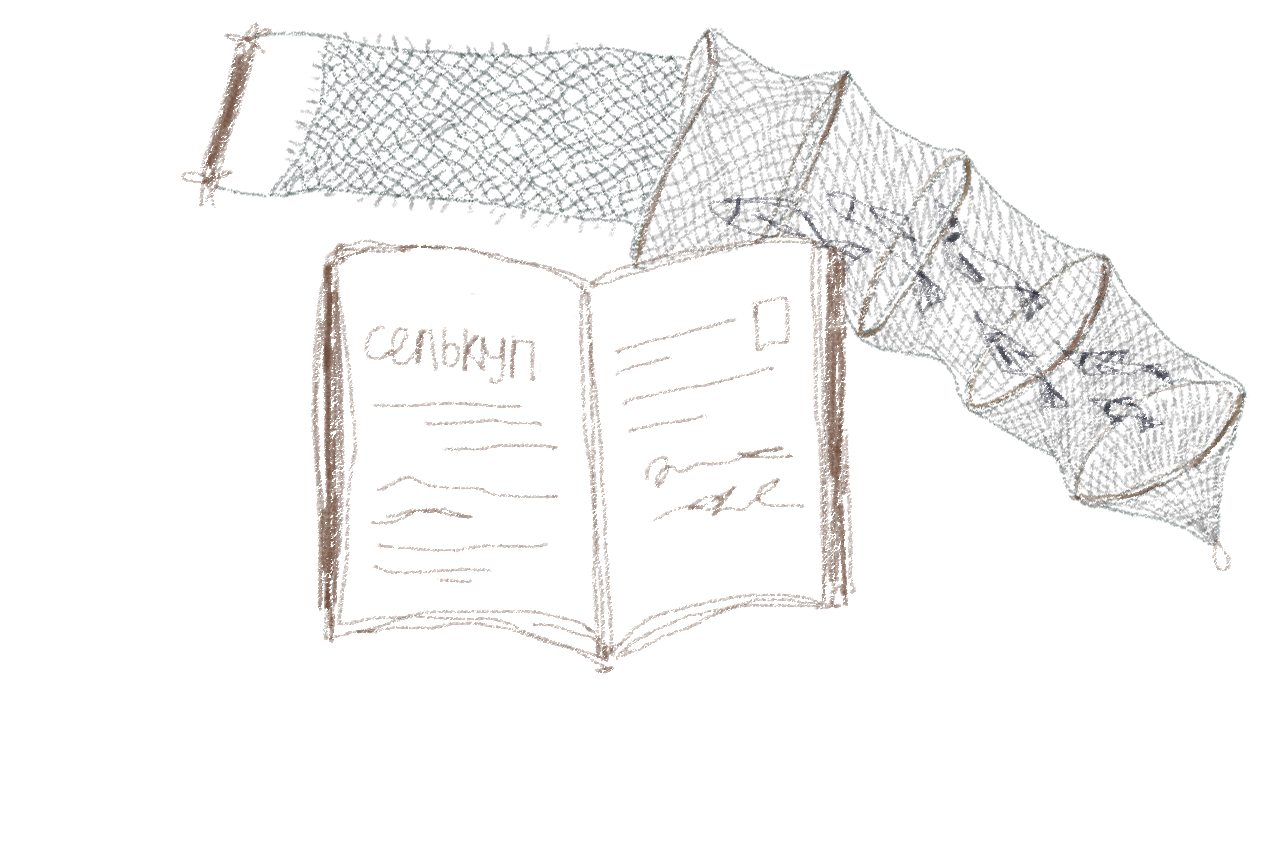
What rights do the Selkups have
and how to get a certificate?
Why being Selkup is profitable advantageous
en
The Selkups:
save as...
About
the Project
CONTEXT
TRADITIONS
TROUBLES
ndigenous Small-Numbered Peoples of the North, Siberia and Far East of the Russian Federation, or, simply put, small nations, are officially comprised of 47 peoples. The Selkup peoples, who live mainly in the north of Western Siberia, are also listed among them.
text:
Ekaterina Vinogradova
I
PART I
What are small
nations
The law establishes a clear definition of this concept specifying which nations can be qualified as the small peoples. Firstly, the size of an ethnic community shall be no more than 50 thousand people. Secondly, the members of this group shall reside in their ancestral domains and be engaged in their household. It traces its origin to the term “indigenous people”, that is, the one that leads a specific way of life: breed cattle, hunting in the forest or fishing. And thirdly, the small-numbered people shall preserve their culture and language.
Why is legislative fixing of a nation necessary?
Dmitry Funk, Doctor of Historical Sciences and the head of the Department of Ethnology at Lomonosov Moscow State University, in his lecture about indigenous small-numbered peoples in Russia on PostNauka (Russian site specializing in promoting science — translator’s note) emphasizes two main causes:
- The protection of their territory and their way of life. That is, if in the middle of a workday you suddenly wanted to go to the forest to hunt for partridges, an employer has to let you off work. It is the so-called call of the ancestors.
- Privileges. A great deal of members of small ethnic groups are not aware of their special privileges even possessing an indigenous identity card.
Let's gain insight into the privileges the small peoples have.
PART II
Their existing privileges
The way of life for people:
- Free use of lands and natural resources located in the indigenous territory as well as the control over their usage.
- Control over the compliance of environmental protection laws while using indigenous territories for industrial and constructional purposes.
- Rights to financial and material assistance obtained from the government for the purposes of cultural development of the peoples.
- Participation in conducting ecological and ethnological expertises during the development of the program of the indigenous territory acquisition.
- Receiving reparations for damages to the environment of the people's habitat.
- Receiving governmental support for the reformation of the system dedicated to upbringing and education of the younger generation of the people adjusted to the peculiarities of their lifestyle.
The way of life of individuals belonging to this nation:
- Employment on a priority basis in the professions related to the traditional fields of economic management in the territory where the people reside.
Military service:
- Substituting military service.
Culture:
- Preservation and development of the mother tongue.
- Formation of associations of ethnic groups.
- Formation of academic associations in order to teach traditional economic management and crafts.
- Creation of mass media with the purpose of spreading their language.
- Religious and ceremonial observation.
- Protection of ceremonial places.
Forest:
- Free wood production for their own needs.
Taxes:
- Absence of land taxation.
- Absence of income taxation.
- No payment of fishing fee irrespective of fishing ground.
Hunting and Fishing:
- Indigenous small-numbered peoples of the North and individuals who do not belong to the indigenous peoples of the North but continuously dwell in the areas of their traditional residences and whose basis for the existence is hunting and fishing are not subjected to fishing fees.
- Hunting and fishing are carried out without special permits; license is provided for endangered species.
- Animals obtained while hunting or fishing can be used for personal purposes of an individual or can be given to a special organization for product sale.
PART III
How to obtain an indigenous identity card
The certificate which confirms the ethnicity related to the Indigenous Small-Numbered Peoples of the North is issued by the communities of Indigenous Peoples of the North or local authorities. It is also possible to issue the certificate at the passport office.
The necessary documents:
- Birth certificate which specifies that at least one parent is Selkup.
- Cору of the passport.
- Application addressed to the chairperson of the association of the Indigenous Small-Numbered Peoples of the North.
- Photograph 3x4.